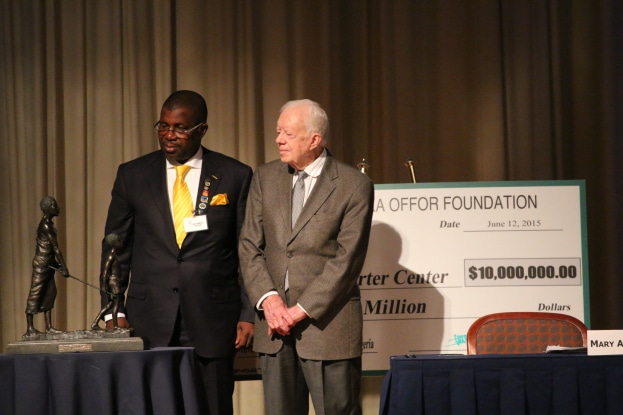How Much Are NSFAS Allowances For UNISA Students – A Detailed Guide
The National Student Financial Aid Scheme (NSFAS) is a critical funding program in South Africa that supports students who are financially disadvantaged. It aims to ensure that students who meet the academic and financial criteria can pursue higher education without the financial burden. For students attending the University of South Africa (UNISA), an open distance learning institution, NSFAS provides not only tuition support but also allowances for living expenses, study materials, and transport.
If you are a UNISA student or are considering studying at UNISA and wondering about NSFAS allowances, it’s crucial to understand how much financial support you are eligible for and how it’s allocated. In this guide, we’ll break down the NSFAS allowances for UNISA students, including the amounts and what they are intended to cover.
What Is NSFAS and Who Is Eligible?
NSFAS is a South African government-funded program that provides financial assistance to students at public universities and Technical and Vocational Education and Training (TVET) colleges. The funding is intended to assist students who cannot afford to pay for their higher education. NSFAS covers the cost of tuition and provides allowances for other essential expenses, such as accommodation, transport, food, and study materials.
For a student to qualify for NSFAS funding, they must meet certain eligibility criteria, including:
- South African Citizenship: Only South African citizens can apply for NSFAS.
- Financial Need: NSFAS is targeted at students from families with a combined household income of less than R350,000 per year.
- Academic Requirements: The student must meet the academic entry requirements for the course or program they wish to pursue.
For students enrolled at UNISA, NSFAS funding is available to eligible undergraduates, provided that they meet the required financial and academic criteria.
How Does NSFAS Support UNISA Students?
NSFAS provides funding to UNISA students for various educational expenses. These typically include:
- Tuition Fees: NSFAS pays for your full tuition if you qualify for funding.
- Study Materials: NSFAS provides allowances for the purchase of study materials, which may include textbooks, software, or other essential resources needed for your studies.
- Living Allowance: This allowance is for students who need financial support for their living expenses, such as food and daily necessities.
- Transport Allowance: For students who need to travel to attend classes or to access study materials, NSFAS provides a transport allowance.
- Accommodation Allowance: If you need accommodation to pursue your studies, NSFAS provides an allowance for students who reside in university-approved accommodation.
Breakdown of NSFAS Allowances for UNISA Students
While NSFAS funding helps cover a wide range of expenses, the specific amounts allocated for different allowances can vary depending on the student’s circumstances. For UNISA students, the following allowances are typically provided:
1. Tuition Fees
The NSFAS pays the full tuition fees for students who qualify. The amount depends on the program you are enrolled in, but the scheme covers the cost of tuition in full as long as you meet the eligibility requirements. This is one of the major benefits of NSFAS funding.
2. Study Materials Allowance
For UNISA students, the NSFAS provides an allowance for study materials. This allowance is meant to cover the cost of essential textbooks, online resources, and any other materials necessary for your courses.
- Amount: The study materials allowance is typically around R5,000 per year. However, the amount may vary depending on the program and the specific needs of the student.
3. Living Allowance
NSFAS provides a living allowance to help cover the cost of food and other day-to-day expenses for students. This allowance is typically given to students who are not living in university-provided accommodation but still need financial assistance for basic living costs.
- Amount: The living allowance for NSFAS students varies but typically ranges from R2,000 to R3,000 per month. This amount is intended to cover the costs of food, toiletries, and other necessary personal expenses.
4. Transport Allowance
UNISA is a distance learning institution, and most students study remotely, meaning they do not need to travel to a physical campus regularly. However, there may still be cases where a student needs to travel to attend an exam or gather study materials.
- Amount: The transport allowance for UNISA students varies. Typically, the transport allowance can range from R1,000 to R2,000 per year, depending on the student’s needs and location. The allowance helps cover transport costs related to studying, such as traveling to exams or accessing other study resources.
5. Accommodation Allowance
For UNISA students, NSFAS provides accommodation funding if the student is required to live away from home for the duration of their studies. This allowance is provided to students who qualify for residential accommodation at university-approved accommodations or in private student housing.
- Amount: The accommodation allowance depends on whether the student is living in a university residence or private accommodation. Typically, students may receive anywhere from R24,000 to R42,000 per year for accommodation costs, depending on the region and the type of accommodation.
How Are NSFAS Allowances Paid to UNISA Students?
NSFAS allowances are paid to students in a variety of ways, depending on the type of allowance and the specific program:
- Tuition Fees: Paid directly to UNISA by NSFAS.
- Study Materials: Typically, NSFAS will either provide the funds to students to purchase study materials directly or issue vouchers for the purchase of textbooks and other educational materials.
- Living and Transport Allowances: These are usually paid into the student’s NSFAS wallet, from which students can withdraw or use the funds for necessary purchases.
- Accommodation Allowance: Paid directly to the student’s landlord or university residence if the student is residing in approved accommodation.
It is essential to keep track of when these payments are made and ensure that your NSFAS account is in good standing to avoid any delays in receiving your allowances.
Additional Considerations
- Verification Process: Students are advised to regularly check their NSFAS application status and any outstanding verification documents. NSFAS may request additional information, such as bank statements or proof of income, to ensure the student meets the eligibility requirements.
- Changes in Eligibility: If there are any changes to your financial or academic status during the academic year, such as a change in household income, be sure to inform NSFAS promptly to avoid funding discrepancies.
- NSFAS Wallet: NSFAS provides a wallet for students to access their allowances. You can manage this wallet through a mobile app and use it to make payments for study materials, transport, and other needs related to your education.
NSFAS provides crucial financial assistance to UNISA students, covering tuition fees, study materials, living expenses, transport, and accommodation costs. The exact amounts of these allowances can vary depending on your program and individual needs, but they are designed to make education more accessible for South African students from low-income backgrounds. If you are a UNISA student and qualify for NSFAS funding, be sure to keep track of your allowances and payments to ensure that your academic journey is as smooth as possible.
If you need more information about NSFAS allowances for UNISA students, visit the official NSFAS website or log in to your NSFAS account to check your status and update any necessary information.



